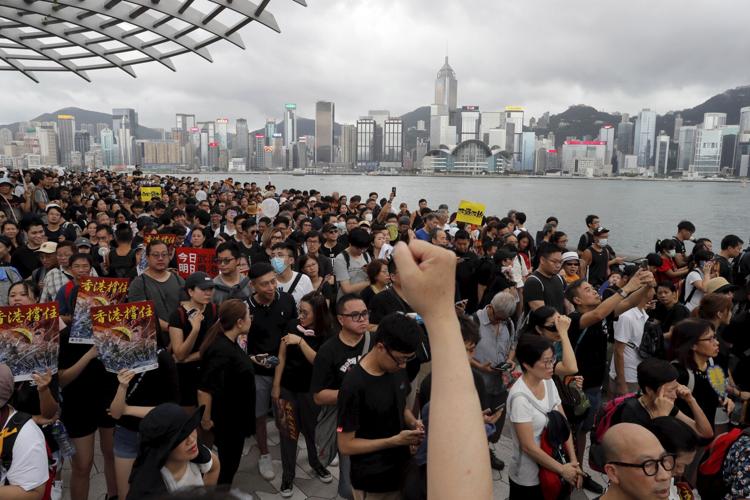
The exodus of tens of thousands of professionals from Hong Kong triggered by a crackdown on its civil liberties is being offset by new arrivals: mainland Chinese keen to move to the former British colony.
The Asian financial hub has attracted tens of thousands of visa applications from mainland Chinese under the Top Talent Pass Scheme, a program launched in late 2022 aimed at luring high-income professionals and top global university graduates from around the world, though nine in 10 successful applicants are from China.
For mainland Chinese, Hong Kong’s unique attributes — such as wider freedom of speech and internet access, its cosmopolitan ambiance, a less oppressive work culture, and a society where ability largely trumps connections — set it apart, according to interviews by The Associated Press with 20 mainland Chinese visa holders.’
Some, like Wu, a finance professional in his 20s, view moving to Hong Kong as a way to gain greater freedom and security. Wu, who asked to be identified by his surname due to fear of government retaliation, said he felt a sense of panic when he was trapped in unpredictable lockdowns in Beijing during the COVID-19 pandemic.
He was tempted to join a protest against China’s stringent COVID-19 restrictions, but opted instead to “run,” a Chinese euphemism for emigrating that became popular during the pandemic. He moved to Hong Kong during the summer.
The leeway for public dissent has narrowed in China in recent years under leader Xi Jinping. Although they have eroded under crackdowns that followed the imposition of a 2020 national security law, Hong Kong still has Western-style civil liberties that reflect its history as a former colony. China’s communist leaders promised to let the semi-autonomous region keep those freedoms for 50 years after it returned to Chinese rule in 1997.
Wu says he shares with many Hong Kongers a desire for freedom of speech. He’s also happy it has fewer staunch nationalists, popularly known as “little pinks,” than in Beijing. He enjoys the ability to freely move his money to other countries and to be able to access the internet without having to use VPNs to circumvent the censorship that prevails in the Chinese mainland.
Since the Hong Kong government enacted the national security law, saying it was needed to restore stability following massive pro-democracy protests in 2019, many of the city’s leading activists have been prosecuted. Dozens of civil society groups have been disbanded, and outspoken media outlets like Apple Daily and Stand News have been forced to shut down.
Those political shifts, alongside strict COVID-19 controls that were lifted in Hong Kong faster than in the mainland, contributed to a decline in Hong Kong’s population from 7.5 million in mid-2019 to 7.3 million in mid-2022. International companies and banks also have been moving away.
It’s unclear how many Hong Kongers have left for good and how many departures were mainly because of the political climate. But more than 123,800 have moved to Britain and thousands of others gained permanent residency in Canada under special policies for people from Hong Kong after the security law took effect.
The talent scheme is meant to help plug that brain drain: According to the immigration department, about 37,000 applications from mainland Chinese have already been approved. It is unclear how many have already arrived in the city, which had about 135,000 mainland Chinese already residing there for less than seven years as of 2021, before the program was launched. Many others have become permanent residents after staying in the city for more than seven years: nearly a third of the city’s residents were born in other parts of China and self-ruled Taiwan, though most of those moved to Hong Kong years ago.
Fresh graduate Zhang Guangwei, 22, said he turned down several job offers in mainland China to work as a software developer in Hong Kong, aiming to escape from China’s notorious “996” working culture, in which employees often work from 9 a.m. to 9 p.m. six days a week.




